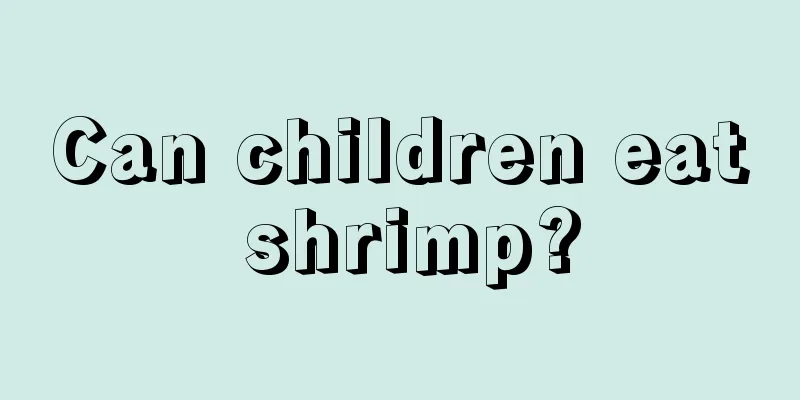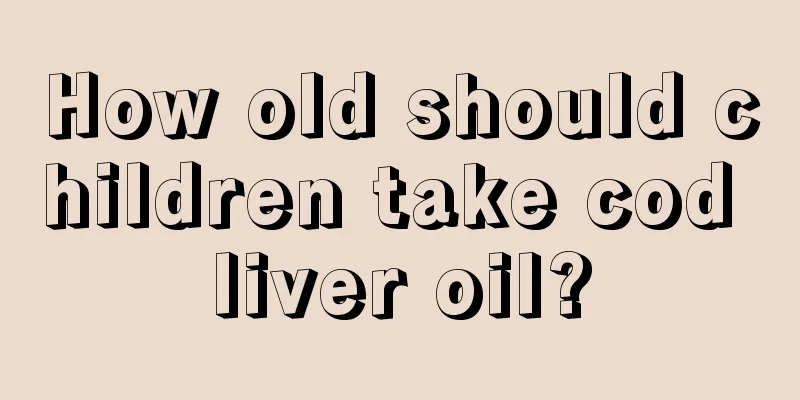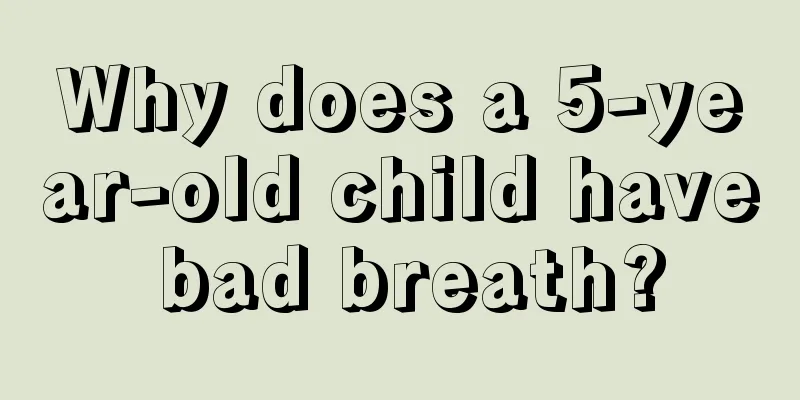Why does my child have stomachache after eating?

|
As parents, our children's health is our biggest concern. We all hope that our children can grow up healthy and strong. However, it is inevitable that children will encounter some diseases during their growth process. Therefore, parents need to take good care of their children. If the child has a problem, timely treatment is needed. Some children will have stomachaches after eating. What is going on? There should be many reasons. We need to understand the child’s age and some specific circumstances. Let’s analyze them below. 1. Intra-abdominal diseases: acute gastritis, gastroenteritis, gastric and duodenal ulcers, intestinal spasmodic colic, intestinal and biliary ascariasis, mesenteric lymphadenitis, acute necrotizing enteritis, viral hepatitis, congenital common bile duct cyst, various pancreatitis, various peritonitis, liver abscess, subphrenic abscess, urinary tract infection, bacterial dysentery, etc. 2. Extra-abdominal diseases: respiratory diseases (upper respiratory tract infection, tonsillitis, lobar pneumonia, acute pleurisy), cardiovascular diseases (acute heart failure, pericarditis, myocarditis), allergic diseases (allergic purpura, urticaria, asthma), nervous system diseases (intercostal neuralgia, abdominal epilepsy), metabolic diseases (hypoglycemia, uremia, porphyria), infectious diseases (typhoid fever, epidemic cerebrospinal meningitis) as well as sepsis, herpes zoster, lead poisoning, etc. Acute appendicitis, gastric and duodenal ulcers with perforation, mechanical intestinal obstruction, intussusception, mesenteric artery embolism, acute intestinal torsion, ileal diverticulitis with perforation, obstruction, primary or secondary peritonitis, incarcerated inguinal hernia, urinary tract stones, hydronephrosis, liver rupture, spleen rupture, ovarian cyst torsion, testicular pedicle torsion, iliac fossa, etc. The common diseases causing abdominal pain in children of different ages are also different. For example, intestinal spasms are more common in infants under 3 months old, often due to improper feeding or swallowing too much air. Intussusception, incarcerated hernia and intestinal infection are more common in children under two years old, while acute appendicitis and intestinal parasitic diseases are relatively rare. Gastrointestinal infections, intestinal parasitic diseases, mesenteric lymphadenitis, biliary ascariasis, lobar pneumonia, abdominal epilepsy, and allergic purpura are more common in older children. To sum up, these are some of the reasons why children have stomachaches after eating. They all indicate that the children are suffering from some gastrointestinal diseases. Parents need to judge these diseases based on the specific situation of the children, and then be sure to go to the hospital for timely treatment. Do not delay the disease and affect the child's growth. Otherwise it will pose a threat to the child's future health. |
<<: What should I do if my child has a stuffy nose after a cold?
>>: What to do if your child is easily tired
Recommend
What to do if the child's genitals are small
The size of people's penises varies, and the ...
How many days does it take for a child's synovitis to heal?
Many people think that children will not suffer f...
What material is good for baby bottles?
For mothers with babies at home, the most concern...
Is a breast pump useful?
Maybe many people don’t know much about breast pu...
What should I do if my baby has repeated fever and diarrhea?
For infants and young children, any kind of physi...
There are 5 taboos for bathing your baby in hot summer
Many mothers may bathe their babies without consi...
What should I do if my baby's lips suddenly turn purple?
Everyone should have had this experience: on cold...
Can a five-month-old baby eat grapes?
Babies are very cute in the eyes of their parents...
How many years should children with Kawasaki disease be reexamined?
Kawasaki disease is a common symptom among childr...
What is the best treatment for eczema in children?
I think everyone knows about eczema. Whether it i...
Chewing gum protects sixth-year teeth
Children's permanent teeth begin to erupt aro...
What are the conditions for children to be nebulized?
Nebulization is the main method used in hospitals...
What are the massage methods for neonatal lacrimal gland inflammation
Faced with every new life, mothers always feel at...
Why does the baby sweat and smell?
The healthy growth of the baby is what parents ho...
Child care knowledge
Children are the hope of every family and the flo...









